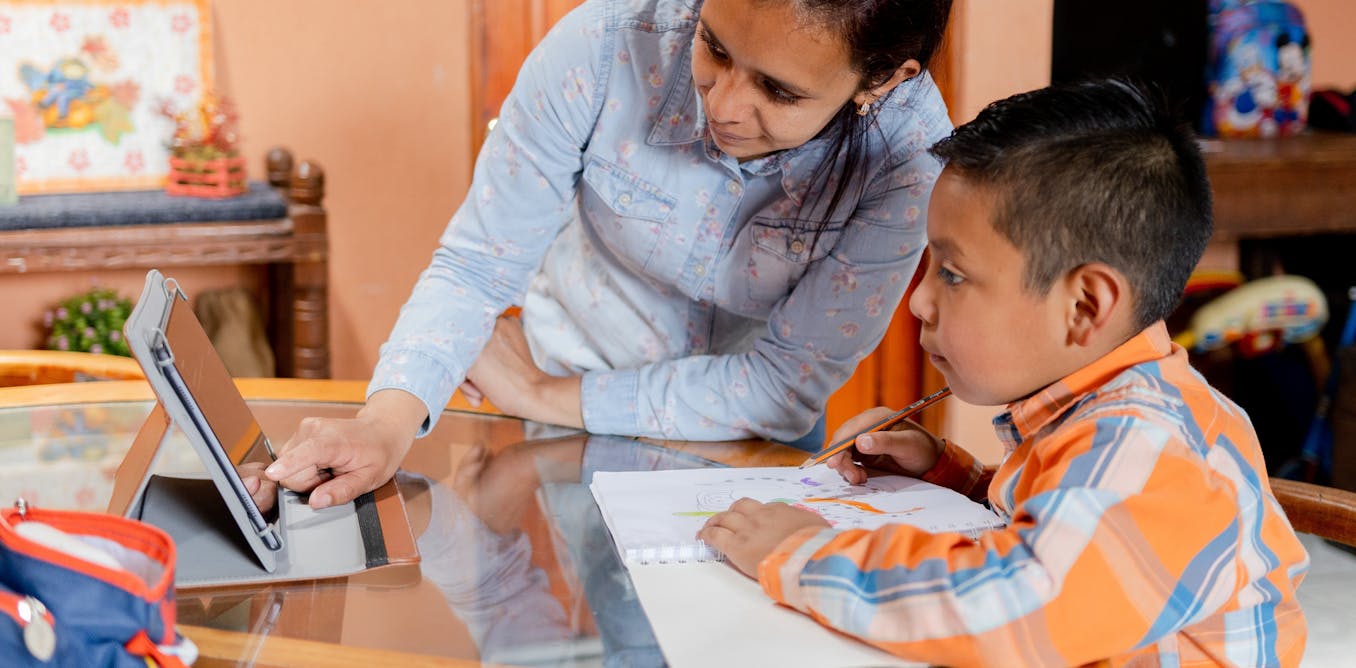There has been a notable rise in parents choosing to home educate their children over recent years, and particularly since the COVID pandemic.
Elective home education – carrying out a child’s education at home, outside the school system – is a legal right in the UK.
The number of families home educating is not known. There is no legal requirement to register with a local authority in England, nor is there any other register for parents choosing to home educate. This means relying on data from organisations carrying out research to gain an idea of these numbers.
The Association of Directors of Children’s Services reported that there were around 81,200 children receiving home education in England in 2021. Charity Education Otherwise reported a similar number of 83,974 in April 2021.
More recently, the Department for Education has begun conducting its own research on home education, from data reported by local authorities. It found that in January 2023, around 86,200 children were being home educated in England – and that this had risen to around 92,000 in autumn 2023.
Ways of home schooling
There are several routes that families take when choosing an educational pathway for their children.
If a child in England is already at mainstream school when their family decides to home educate, the parents must de-register their child before beginning home education. To do so parents need to send a letter of de-registration, requesting the school to remove the child from their roll.
In Scotland, a parent needs the local council’s permission to withdraw their child from school.
If a child is not at school and has not been entered into the schooling system, there is no requirement to alert the local authority and they can simply continue to educate how they want.
Some parents may choose a combination of school and home education. This is known as flexi-schooling: the child attends school part time and learns at home part time. However, this is not a right and in England, requires the agreement of the school’s headteacher.
Other educational options available to families when their children are struggling in the mainstream system include “education other than at school”. In this case, the school remains responsible for the child’s education but it is provided either at home or within a specialist provision, such as a special school.
Alternatively, a child may be educated in alternate provision. In England, this might be in a Pupil Referral Unit. This is a type of school that caters for children who are unable to attend mainstream school. This could be for a range of reasons such as illness, behavioural difficulties or neurodiverse learning styles.
Choosing home education
There are many reasons parents choose to home educate their child.
There are those who reject the mainstream way of educating and opt for a more “unconventional” approach. The parents want to focus on nurturing their children and want to be at home learning with them.
Some families talk of being unhappy with the school curriculum. They choose to home educate so they can teach the curriculum they wish and give their child or children a personalised education.
Families may choose home education because it fits best with their own lifestyle. Work and life commitments can dictate how the children learn and some families choose to do it while travelling, which is known as roadschooling or worldschooling.
Borovskih Olga/Shutterstock
Some families feel they do not have a choice but to home educate. They have been termed in some research as “last resort” home educators.
Their child might have special educational needs or disabilities that their school is unable to meet adequately. Their child might be being bullied at school, or they might be highly gifted, meaning that they or their parents feel the school curriculum isn’t suitable for them. Some young people may refuse to attend school due to overwhelming anxiety or what is known as “emotionally based school avoidance”.
A study that explored why parents in the UK chose to home educate found the most common reasons were that parents were disappointed with the education and schools (31%); they had always planned and had the intention to home educate (30%); their child was being bullied (25%) or the child was sick, exhausted or depressed (24%).
Social media – whether through homeschooling families’ Instagram accounts or sites such as the Not Fine in School Facebook page, where parents discuss the challenges their children face in mainstream education – has played a powerful role in expanding knowledge of home education. More parents may be making this choice because they know it is an option available to them.
The challenge is to ensure adequate support is in place for the children who may want to remain in school but feel they cannot, as well as for those whose families wish to take this route.

The post “why are so many parents choosing it over mainstream school?” by Lucie Wheeler, Education Research Assistant and PhD Candidate, Anglia Ruskin University was published on 08/30/2024 by theconversation.com





































Leave a Reply